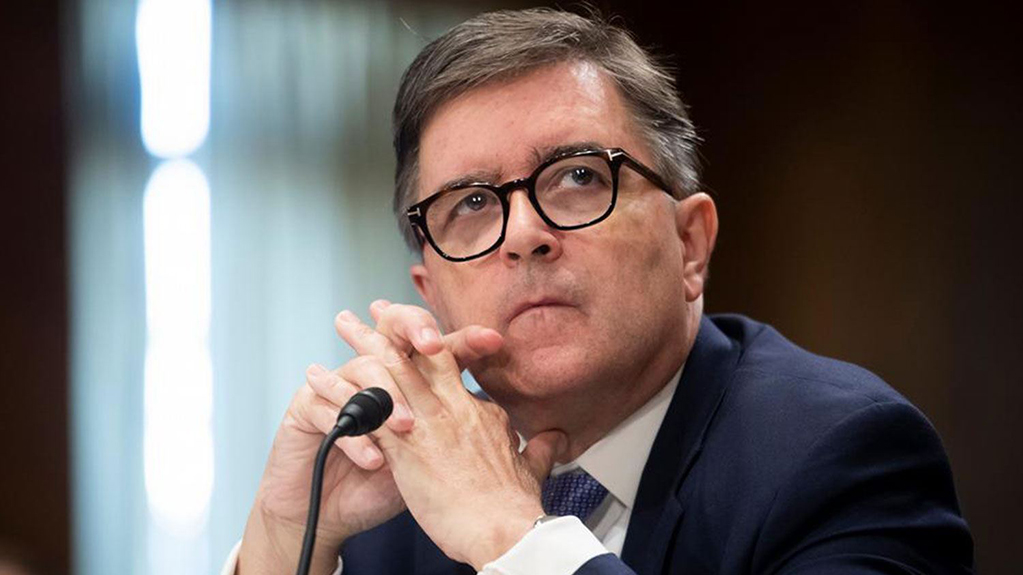“And if the law goes forward out of conformity with EU norms and there’s undermining of democracy here and there’s violence against peaceful protesters – peaceful protestors, then we will see restrictions coming from the United States. Those tend to be financial and/or travel restrictions on the individuals responsible for those actions and their families,” the US Assistant Secretary of State for European and Eurasian Affairs, Jim O'Brien, stated at the end of his visit to Georgia.
News
During his visit to Tbilisi, O'Brien met with Georgia's Prime Minister, President, opposition leaders, and business representatives. The primary focus of their discussions was the Russian-style law that the ruling Georgian Dream approved in its third and final reading on May 14, despite criticism from the USA and other partners.
"So when I came here, I was a little disturbed to find that there are two very different conversations. One concerns the law on foreign influence. Some advocates of the law say that transparency of funding must be a prime national interest of Georgia. And they feel that some Western funders are not as transparent as we might be. Our interest is in seeing Georgia converge with European Union and transatlantic norms for addressing issues like transparency. Frankly, we think neither the process nor the actual law implemented meets that standard and we hope to have more discussions to see any step on transparency matching European norms as Georgia goes forward. We were promised that there would be the opportunity for this before the law was implemented. And I was very clear that there would be consequences if the law were implemented as it now stands," the assistant secretary of state said.
Jim O'Brien stated that Georgia is striving to join the European Union and NATO, and these organizations have specific standards and rules that must be followed.
"We simply want Georgia to continue to match those standards rather than to deviate. But there is a sense because a decision by Georgia to not converge with Europe would be a rejection of the path that is in Georgia’s own constitution. We believe, and we see it in the polls, we see it on the streets, we hear it from every political party, including Georgian Dream, backers of Georgian Dream, the business community, and others – the Georgian people very much want to continue down that path, and we will stand with them as we have for more than 30 years. And we will stand with them going forward. So in this sense, if the conversations that we discussed today happen and the law is properly modified, it will be a way of strengthening our partnership rather than wrenching it apart, which I fear that it is now doing," O'Brien said.
"But that was just one kind of conversation that I had. And the law is a small part of a broader conversation. The broader conversation concerns comments by leaders of Georgian Dream. That there is a global war party and that Georgia must turn away from the commitments made to the global war party. And that there is a conspiracy by the West to remove Georgian Dream from office, despite 12 years of strong cooperation. This is like a Reddit page came to life. It is unreal, wrong, and a complete misunderstanding of the international community’s relationship to Georgia. One example of it is what the Prime Minister mentioned last night. So we had reached out for conversations with all stakeholders. We had invited the Prime Minister to Washington to discuss the law and the relationship. The European Union had discussions here and was promised time for a conversation about the law. And I asked, before coming here, I was happy to see Mr. Ivanishvili again. The Prime Minister said he would not see me because we have him under de facto sanctions. There are no sanctions on him at this point.
For such an influential individual to be that badly misinformed is shocking and disappointing. For the Prime Minister to say that that is a reason that one of Georgia’s most important partners cannot meet with this citizen is to elevate that individual interest above the country’s constitutional commitment to working more with international partners and joining the EU and NATO.
So that is why I say the law is just one part of a broader conversation. But it captures what I think is so important and could be a turning point in what has been till now a constructive and productive partnership. If there are going to be demonstrations, we want them to be peaceful and we want the police presence to be peaceful. We want there to be no intimidation of the protesters or others - either at the demonstration or at their homes or against their property. As has happened in recent days, the people responsible for that intimidation should be found and prosecuted," said Jim O'Brien.
He noted that if the law goes into effect without aligning with EU norms and if defamation against the United States and other partners continues, relations will be revised:
“If the law goes forward without conforming to EU norms and this kind of rhetoric and aspersions against the US and other partners continue, I think the relationship is at risk. Just a few examples: the US has about $390 million in assistance that we are planning to spend with Georgian authorities. Half on military assistance, a little more or about another third roughly on economic development projects, and more on building institutions along with some for civil society. All that has to be under review if we are now regarded as an adversary and not a partner.”















